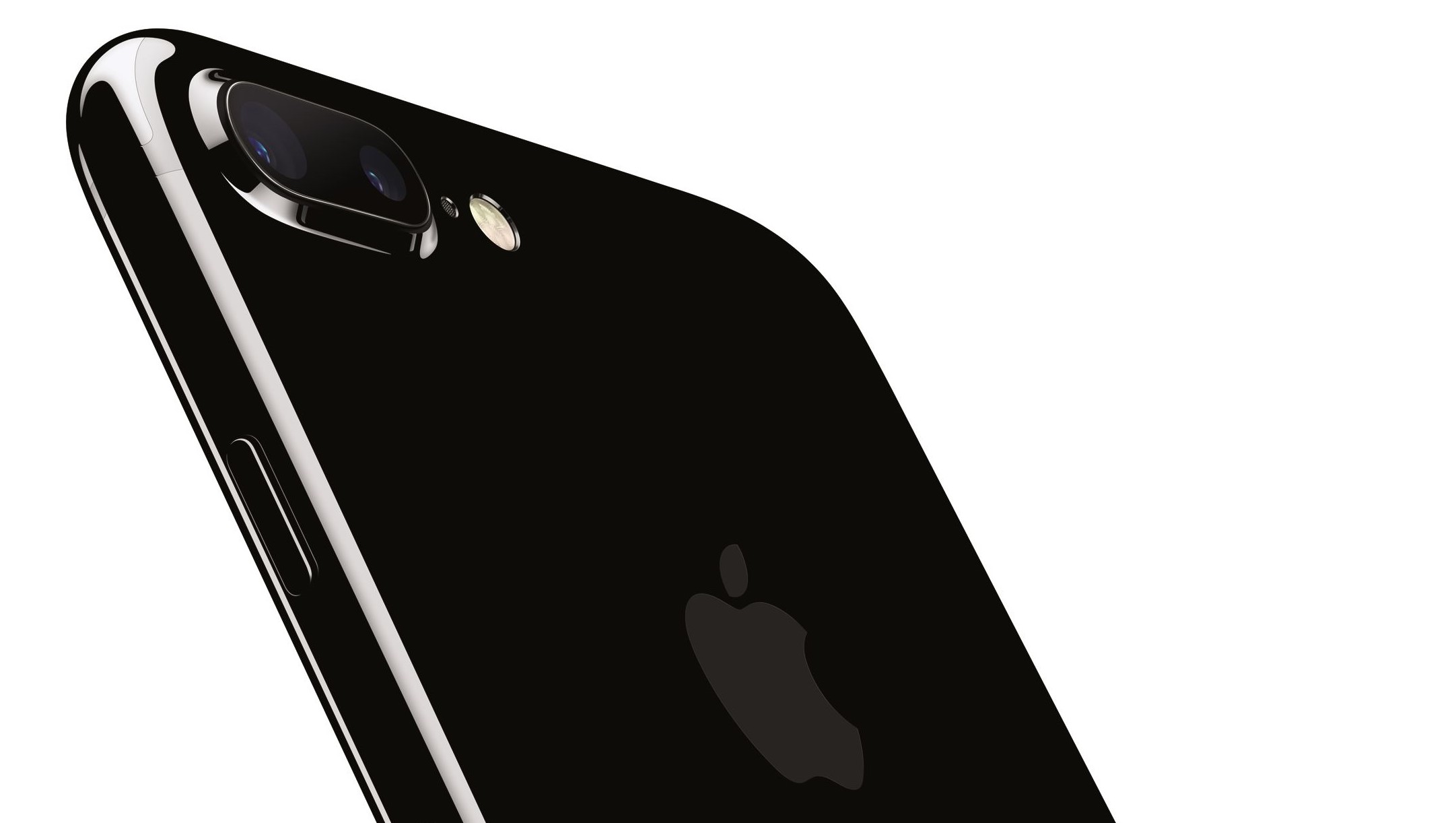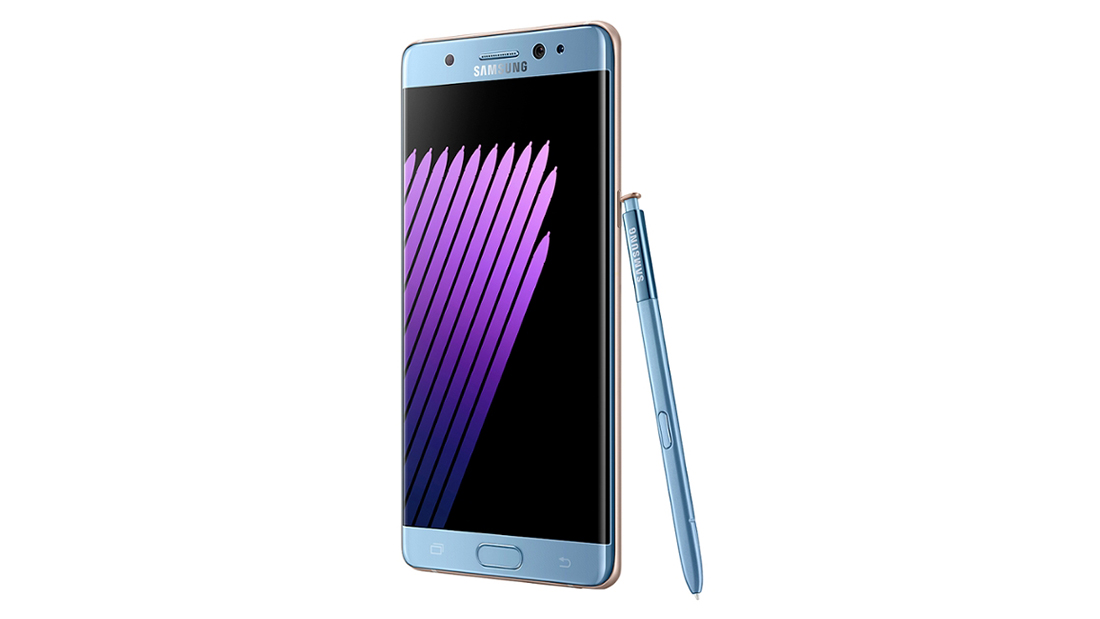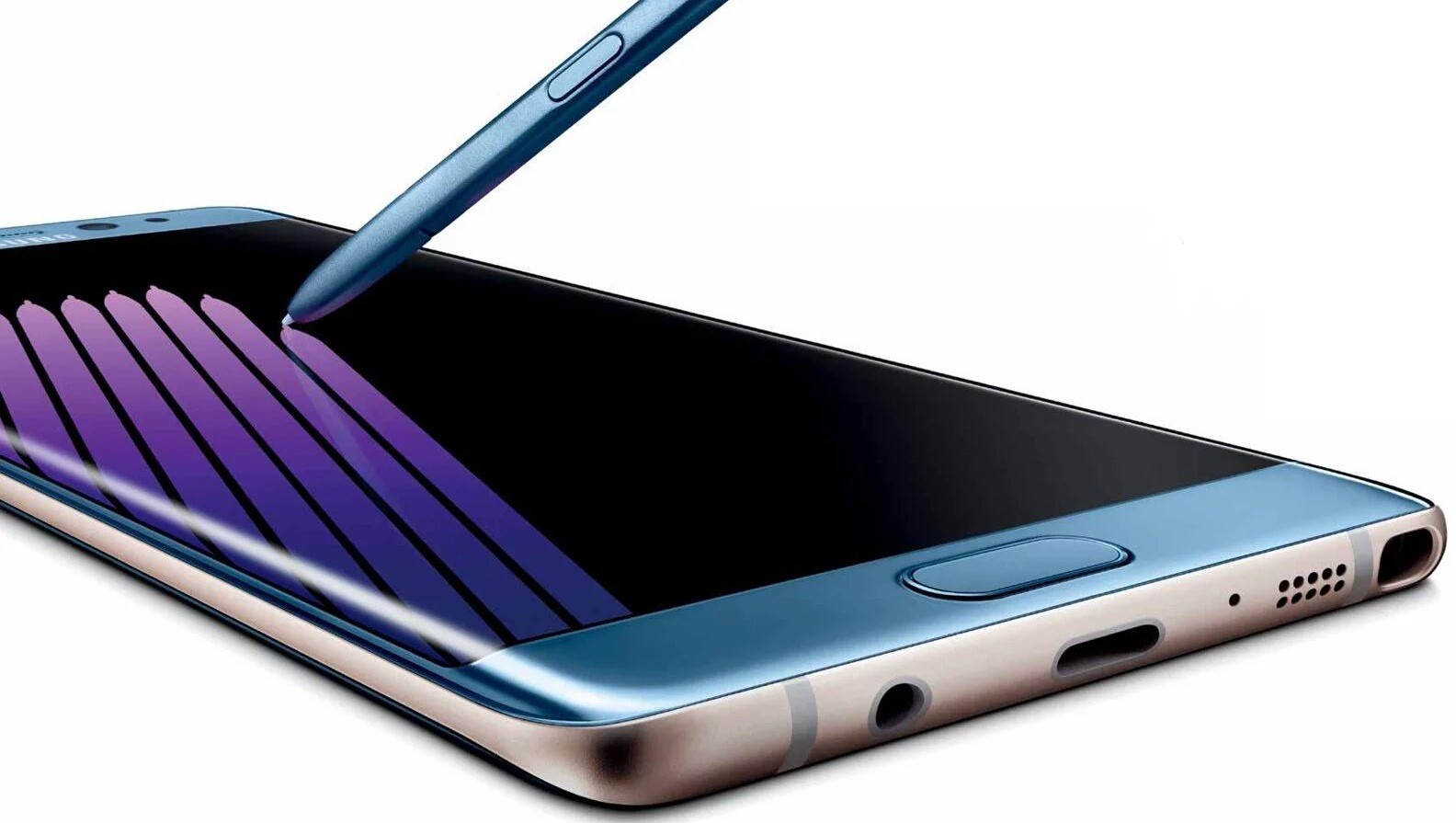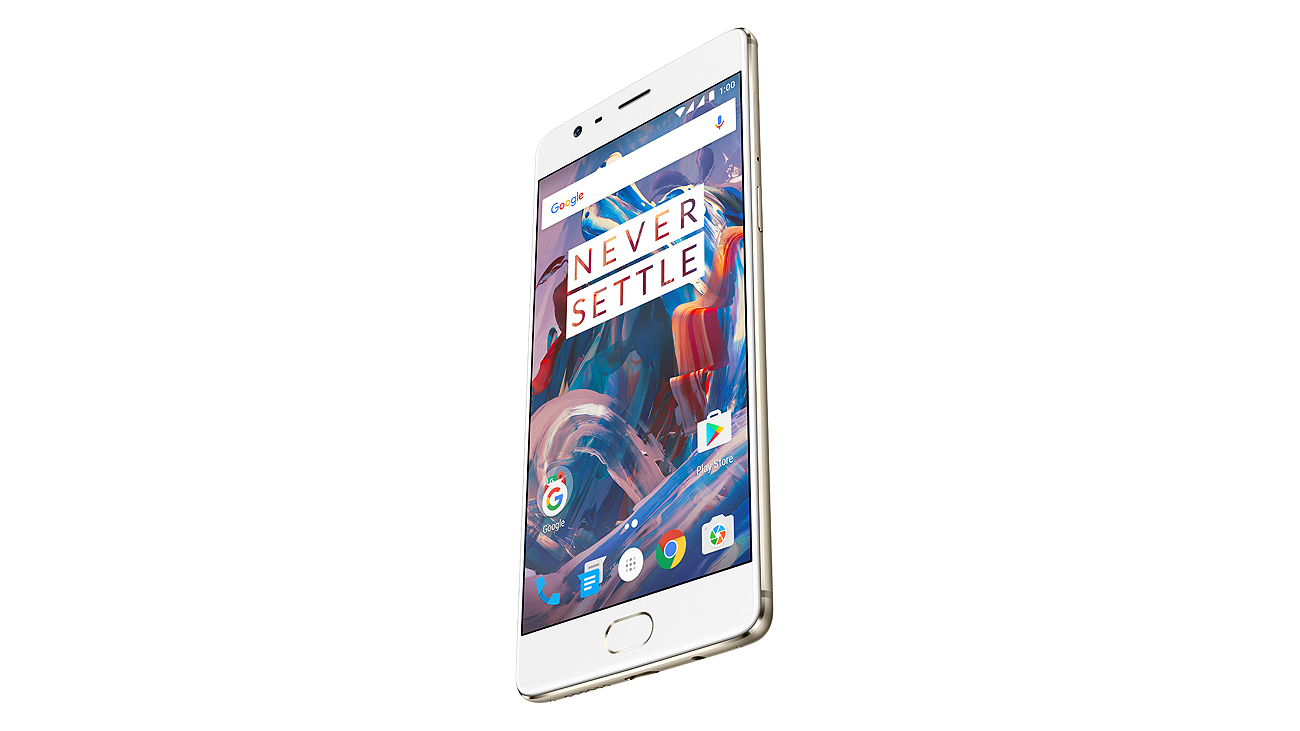T3 Smackdown: iPhone 7 Plus vs vs OnePlus 3 vs Galaxy Note 7
Which is the best BIG phone?


It's Apple's best iPhone, with clever dual cameras, even better battery life and Apple's fastest mobile processor. But is the newly announced iPhone 7 so good it can tempt us away from Android's most powerful and best value flagships?
There's only one way to find out: put it head to head with the OnePlus 3 and Galaxy Note 7. So that's what we did.
Design
Of the three handsets, we think the OnePlus 3 has the least desirable design. It isn't bad, but it's not the sort of thing that stirs the soul either: there's a distinct whiff of HTC to it.
The Galaxy is more attractive, partly due to its glass back and partly due to the impressive way Samsung has managed to make a phone with a bigger screen than Apple's in a device that's actually smaller.

Design wise, the iPhone 7 Plus is more of an iPhone 6S-S Plus: it's a refinement of the existing design rather than a big change, with the antenna bands almost invisible and a new, highly polished gloss black finish as well as the familiar gold, rose gold and silver options. There's another black option, called “black”.
The 7 also catches up with Android by offering IP67 water and dust resistance.
One thing worth mentioning is that the Galaxy is quite slippy in the hand. It's worth considering a protective case, because it's very, very easy to drop.
Get all the latest news, reviews, deals and buying guides on gorgeous tech, home and active products from the T3 experts
The big change with the iPhone is the much-rumoured demise of the 3.5mm headphone jack in favour of the Lightning connector. The free adaptor is nice to have, but the end of the jack means the end of the ability to listen on headphones and charge the phone at the same time, and it'll annoy iPhone musicians too.
The new stereo speakers should help soften the blow, however: they're twice as loud as the speaker in the previous iPhone models, and boast a wider dynamic range for better sound.
Apple: 85
Samsung: 81
OnePlus: 69
Display
We're used to spectacular displays on Samsung flagships and the Note 7 is no exception: its curved-edge 5.7-inch Super AMOLED delivers 2,560 x 1,440 pixels at 518 PPI. It's protected with Gorilla Glass 5 and has Samsung's useful Always On feature, which enables the screen to show notifications without waking the entire panel.

The OnePlus's AMOLED screen is slightly smaller and considerably less dense, with 1,920 x 1,080 pixels at 401ppi. The Gorilla Glass here is version 4.
While the iPhone 7 Plus's Retina Display has been improved, with 25% higher brightness and a wide colour gamut, the resolution remains the same as the previous model and the same as the OnePlus: 1,920 x 1080 at 401ppi.
It's a very good screen, but on paper, the Samsung is much better.
Apple: 72
Samsung: 90
OnePlus: 70
Specs
In most markets the Galaxy is powered by Samsung's own Exynos processor and the OnePlus by a Snapdragon 820. The former is an octa-core processor with 4 x 2.3GHz cores and 4 x 1.16GHz cores, while the Snapdragon is quad-core with 2 x 2.15GHz cores and 2 x 1.6GHz cores.
The Samsung GPU is a Mali-T880 MP12 while the OnePlus has an Adreno 530.
In the US and Japan, the Samsung has the same processor and GPU spec as the OnePlus.
Apple is using its own silicon again, this time in the form of the A10 Fusion processor. It's a four-core, 64-bit CPU with two high-performance cores and two energy efficient cores.

Apple claims 40% better performance than the previous A9 chip, and improved battery life too.
Storage is 6GB of RAM and 64GB internal for the OnePlus, while the Galaxy has 4GB of RAM and 64GB internal. The Samsung also supports microSDs of up to 256GB.
Apple: 82
Samsung: 82
OnePlus: 82
Battery
We can't do this bit without mentioning Samsung's unfortunate exploding-battery problem, which is so serious that Apple has reportedly upped production of the iPhone 7 to attract would-be Note buyers.
It appears to be a teething problem rather than a design flaw, but as teeth go we're talking really big, Bee Gees-style teeth.
When it isn't on fire, the Note's battery delivers 3,500mAh. That's 500mAh more than the OnePlus, which should more than address the difference in screen sizes: the Samsung display will draw more power than the smaller OnePlus.

Both Android phones support fast charging and the Samsung supports Qi wireless charging too.
Apple hasn't published battery specs yet, but it promises the best battery life in any iPhone to date. According to Apple, that means 2 hours longer from the iPhone 7 compared to the iPhone 6S, and one extra hour if you're moving from 6S Plus to 7 Plus.
Apple: 84
Samsung: 1 (if on fire), 87 (if not)
OnePlus: 84
Camera
The OnePlus has a 16MP, f/2.0 primary camera capable of recording 2160p video at 30fps and a secondary 8MP camera, again with f/2.0 aperture.
On paper that beats the Samsung's 12MP and 5MP cameras, but the Samsung's better f/1.7 aperture and dual pixel sensor means, in our experience, the Samsung has consistently outperformed the OnePlus. Both Android devices have optical image stabilisation to help with low light and fast moving subjects.
The iPhone 7 Plus, like its predecessor, gets the pick of Apple's camera technology, this time in the form of twin 12MP lenses: one wide angle, one telephoto.

That means optical zoom of 2X and digital zoom of 10X, but it also facilitates shallow depth of field, aka bokeh, to deliver DSLR-style portraits. It's got optical stabilisation for front and rear cameras, a four-LED TrueTone flash and flicker compensation for artificial light.
If the camera's as good as Apple claims - and if the bokeh software update does indeed arrive later this year, as promised - the iPhone 7 Plus could be very special indeed.
Apple: 90
Samsung: 88
OnePlus: 80
Usability and Features
The OnePlus ships with Android Marshmallow and its own Oxygen OS, which is a fairly stylish take on stock Android. The Samsung is Marshmallow too, with Samsung's TouchWiz on top. TouchWiz is more of a Marmite proposition than Oxygen, but the bugs and lags of older versions are long gone.
The imminent iOS 10 is a very good mobile OS, and it introduces useful changes including a much-needed redesign for Apple Music, a more prominent role for Apple's HomeKit and third party integration for Siri, which should be a very big deal.

As ever iOS provides very limited customisation options compared to Android, but that means a more consistent user experience.
Apple: 92
Samsung: 88
OnePlus: 89
Verdict
Apple: 83
Samsung: 86
OnePlus: 79
We need to mention money here. Where the Samsung is £749 and the iPhone 7 Plus starts at £719 - a £100 increase over the outgoing model - the OnePlus 3 is just £329.
The other phones are better, but are the differences so great that it's worth spending twice as much money? For many people, the answer will be a firm no. The OnePlus might not be the best flagship, but it's the best value for money.
And if money's no object? Once the battery problems have been solved, the Galaxy Note 7 has a strong claim to be the best Android smartphone around.
Whether it's better than the best iOS phone around largely depends on your opinion of iOS, Apple's ecosystem and whether you're annoyed about the death of the 3.5mm headphone jack. But more than anything, it comes down to the iPhone 7's camera. You're paying a premium for it, but you're getting a camera that's better than anything Apple's ever offered before - alongside a camera app that we already know to be intuitive and impressive.
It's a lot of money, but it's a lot of phone too. Our head says Samsung, but our heart is yelling “bokeh!” and pointing us towards the iPhone.
Liked this?
- These are the best smartphones in 2016
- This is EVERYTHING you need to know about the iPhone 7
- There's also the Apple Watch Series 2
- What's the difference between the iPhone 7 and iPhone 6S?
- iPhone 7 DEALS!
- Here's everything new in iOS 10
Writer, musician and broadcaster Carrie Marshall has been covering technology since 1998 and is particularly interested in how tech can help us live our best lives. Her CV is a who’s who of magazines, newspapers, websites and radio programmes ranging from T3, Techradar and MacFormat to the BBC, Sunday Post and People’s Friend. Carrie has written more than a dozen books, ghost-wrote two more and co-wrote seven more books and a Radio 2 documentary series; her memoir, Carrie Kills A Man, was shortlisted for the British Book Awards. When she’s not scribbling, Carrie is the singer in Glaswegian rock band Unquiet Mind (unquietmindmusic).
